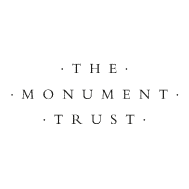Notes from a Stage Manager

I’ve had the best seats in the house for dozens of shows. I’ve been able to have a special behind-the-scenes look at the performance, been able to meet the cast and performers before the show, go to the pub with them after the gig finished – and I haven’t paid a penny. How did I manage that? I’m a backstage manager for the Theatre Royal.
The backstage manager team is a group of volunteers who support visiting companies. You don’t have to have to have theatre experience, but it’s a great way to get some – and did I mention you get to meet cool people and see the shows for free?
Here’s what an evening looks like for me:
I come in at 6pm and check in with the production team. They’ve been in since 3pm with our Technical Manager, Sandy, focusing lights and going through the show. They’re just finishing up when I arrive, so I take the downtime to refresh myself on the fire evacuation protocol I learned at my training (hopefully I’ll never need it, but better safe than sorry!)
The tech set-up finishes, and the technicians take a well-deserved break. I greet the performers – sometimes it’s a big name and my heart flutters a little bit, I admit – and let them know I’ll be on hand to take care of any issues. Usually they’ll want a jug of water backstage, or suggestions for a place to grab some food after the show. Sometimes it’s more complex, like they need someone to close the tabs at a certain time, or, in a particularly memorable production, to pick up discarded clothing after a burlesque number. Once, when tech was running particularly long, I picked up sandwiches for the cast and crew.
Usually, though, there’s nothing much. We chat, I make sure they know where the dressing rooms, kettle, and smoking areas are, and then I let them get about their business. They’ve often been on the road for weeks or months, and know exactly what needs to happen before curtain up.
By this point it’s 6:45pm, so I grab radios from the backstage office and make sure that the Front of House Team, bar staff, and tech team can all communicate with each other, and with me. We’re expecting a full house, so I let Front of House get on with their prep and I pop up to the tech box. There are two technicians – one of ours and one who has come with the traveling show. I make sure that our tech has a radio, double check the run-time of the show and when the interval is (so we can have the ice creams ready to go), and confirm with Front of House on my way back down.
At 7pm the doors open, and I check with the cast and crew of the company whether they’re happy to let the audience – the ‘punters’, we call them – into the auditorium. Usually it’s no problem, but sometimes there’s a last-minute tweak to lighting or sound that needs to happen. When everybody is ready, I make an announcement to backstage and front of house that the auditorium is open.
As we approach 7.30pm, I give ‘calls’ to the backstage, letting the performers know how long they have to continue getting ready. We have a tannoy system set up which allows me to give calls from the stage to the dressing rooms, which makes communication much easier. By 7.25pm, the performers are onstage, and I check with them and the technical team that they’re ready to begin. Front of House gives ‘clearance’ when all the patrons are in the auditorium, and then I give clearance to tech.
At this point, there’s usually not much for me to do except sit back, relax, and enjoy an up-close performance of a fabulous production. To me it’s the best seat in the house.
Are you interested in joining the stage management team? We are always welcoming new recruits. Get in touch to join!
















